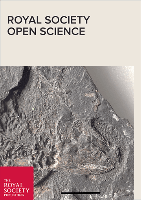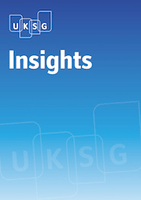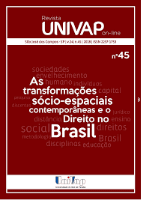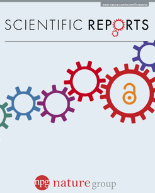
Royal Society Open Science
metrics 2024
Unlocking knowledge through open access and global engagement.
Introduction
Royal Society Open Science is a premier open-access journal published by the esteemed Royal Society, dedicated to fostering multidisciplinary research across various fields of science. Since its inception in 2014, this journal has distinguished itself within the academic community, achieving a remarkable Q1 ranking in the multidisciplinary category as per the 2023 metrics, placing it in the top tier of its field with a Scopus rank of #19 out of 171, showcasing its influence with a notable 89th percentile. Located in the heart of London, the journal aims to provide a platform for the rapid dissemination of high-quality research, promoting innovation and collaboration among researchers worldwide. With a commitment to open access, it ensures that findings are accessible to all, encouraging engagement and discussion within the scientific community and beyond. This journal is not only a vital resource for advancing knowledge in various sciences but also a beacon of the Royal Society's mission to make science accessible and impactful.
Metrics 2024
 0.79
0.79 2.90
2.90 3.00
3.00 83
83Metrics History
Rank 2024
Scopus
IF (Web Of Science)
JCI (Web Of Science)
Quartile History
Similar Journals

GEUS Bulletin
Connecting the Dots Between Geology and Atmospheric Science.GEUS Bulletin is a prominent open-access journal published by the Geological Survey Denmark & Greenland, serving as a vital platform for the dissemination of high-quality research in the fields of Atmospheric Science, Earth and Planetary Sciences, Geology, and Geophysics. With an ISSN of 2597-2154, this journal has established a noteworthy presence since its inception in 2020, particularly noted for its impressive categorizations and Scopus rankings—placing it within the top halves of its respective categories. Researchers and professionals alike are encouraged to contribute to its diverse scope that embraces advancing knowledge and innovative methodologies within the Earth sciences. With a current impact factor and the accessibility of articles to a global audience, the GEUS Bulletin seeks to engage the scholarly community through the rigorous scrutiny of peer-reviewed research while ensuring that critical insights are readily available to students and professionals in the field. Join us in exploring the dynamic interplay between the Earth's systems and their atmospheric interactions in this essential academic resource.

Research Integrity and Peer Review
Fostering integrity in research, one review at a time.Research Integrity and Peer Review is a pioneering open access journal published by BMC, dedicated to advancing the fields of research integrity and the processes underpinning peer review. With an E-ISSN of 2058-8615, the journal plays a critical role in fostering a transparent, accountable, and evidence-based research environment, vital for both scholars and practitioners in academia. Since its inception in 2016 as an open access platform, it has facilitated unrestricted access to high-quality research outputs, promoting widespread dissemination of findings relevant to ethics, methodology, and integrity in research practices. By providing a dedicated forum for discussions, critiques, and methodologies surrounding peer review and research integrity, this journal is positioned as an essential resource for researchers, institutions, and policymakers aiming to uphold the highest standards in scholarly communication.

Insights-The UKSG Journal
Unveiling Trends that Shape the Future of Libraries.Insights - The UKSG Journal, published by UBIQUITY PRESS LTD, serves as a pivotal resource in the Library and Information Sciences field, boasting an impressive Q2 ranking in the 2023 category quartiles. Since its transition to an Open Access model in 2012, the journal has committed to disseminating high-quality research and innovative practices, making valuable contributions to the academic community. With a focus on significant trends and developments in information services and their implications on research and academia, Insights offers an inclusive platform for researchers, professionals, and students alike. The journal spans from 2012 to 2024, ensuring a comprehensive archive of contemporary scholarship. By adhering to the rigor of peer-review and encouraging interdisciplinary dialogue, Insights continues to enhance its impact and relevance, ranking at #111 out of 280 in Scopus for Social Sciences, while remaining dedicated to fostering advancement in library practice.

Data
Transforming data into knowledge for a digital future.Data is an innovative open-access journal published by MDPI, dedicated to advancing research and knowledge in the fields of Computer Science and Information Systems. Since its inception in 2016, Data has positioned itself as a prominent platform for disseminating high-quality research, currently boasting an impact factor reflective of its rigorous peer-review process and academic standards. Situated in Switzerland, the journal encompasses a broad scope of topics, making it an essential resource for researchers, professionals, and students alike. With a notable standing in multiple categories—including Q2 rankings in Information Systems and Information Systems and Management—the journal facilitates access to cutting-edge findings and methodologies that drive innovation in data management and analysis. Scholars are encouraged to utilize this open-access platform to share their findings and contribute to the collective understanding in these rapidly evolving fields.

Revista Univap
Unlocking Insights, Bridging Disciplines.Revista Univap is a distinguished peer-reviewed academic journal published by UNIV VALE PARAIBA-UNIVAP, dedicated to advancing knowledge across various fields of study. With an ISSN of 1517-3275 and an E-ISSN of 2237-1753, this journal has consistently embraced the principles of Open Access since 2011, ensuring that researchers, professionals, and students can easily access cutting-edge research and findings. Situated in Sao Jose dos Campos, Brazil, the journal serves as a platform for the dissemination of high-quality research that addresses current challenges and trends within the scientific community. Although specific HIndex and Scopus rankings are currently not available, Revista Univap’s commitment to academic excellence and knowledge sharing positions it as an important resource for those seeking to contribute to and stay abreast of developments in their respective fields.

Scientific Reports
Pioneering Open Access for Global Scientific Progress.Scientific Reports, published by the esteemed NATURE PORTFOLIO, is a prominent multidisciplinary journal that has been making significant strides in scientific communication since its inception in 2011. With an impressive impact factor and ranked in the Q1 category of multidisciplinary journals, it holds a respected position, placing it at #14 out of 171 according to Scopus rankings, reflecting its high citation rates and robust academic contributions in the 92nd percentile. The journal operates under an Open Access model, enabling broad dissemination of research findings and advancing scientific knowledge globally. Based in the United Kingdom, with offices in Germany, Scientific Reports is committed to publishing high-quality, peer-reviewed research across diverse fields, catering to the needs of researchers, professionals, and students alike, fostering collaboration and innovation in the scientific community.

International Journal of Engineering and Technology Innovation
Empowering Engineers Through Open Access InsightsThe International Journal of Engineering and Technology Innovation, published by the Taiwan Association of Engineering & Technology Innovation, serves as a pivotal platform for recent advancements in the fields of engineering and technology innovation, fostering scholarly communication and collaboration across disciplines. Since its inception in 2011, the journal has maintained an Open Access policy, ensuring that research findings are readily available to a global audience without restrictions, promoting knowledge sharing and accelerating innovation. With an ISSN of 2223-5329 and an E-ISSN of 2226-809X, this esteemed publication encompasses vital research from categories within Civil and Structural Engineering, Electrical and Electronic Engineering, Mechanical Engineering, and Mechanics of Materials, each recognized in the Q3 quartile as of 2023. As researchers, professionals, and students navigate the rapidly evolving landscape of technology, the International Journal of Engineering and Technology Innovation serves not only as a repository of high-quality research but also as a catalyst for progressive ideas that reshape the future of engineering practices worldwide.

iScience
Elevating research visibility for scholars and professionals.iScience, published by Cell Press, is a premier open-access journal committed to advancing the field of multidisciplinary sciences. Since its inception in 2018, iScience has established itself as a leader in the academic community, with an impressive Scopus ranking of #17 out of 171 in its category, placing it in the 90th percentile. The journal aims to foster interdisciplinary collaboration by disseminating high-quality research across diverse scientific domains, thereby providing a platform for innovative approaches to complex challenges. iScience is dedicated to open access, ensuring that research findings are readily available to a global audience, enhancing visibility and accessibility for scholars, professionals, and students alike. With its ongoing commitment to excellence and impact, iScience plays a crucial role in shaping the future of scientific inquiry.

Nature Communications
Catalyzing Breakthroughs in Science and TechnologyNature Communications is a premier open-access journal published by NATURE PORTFOLIO, distinguished for its broad scope encompassing Biochemistry, Genetics and Molecular Biology, Chemistry, and Physics and Astronomy. With a remarkable impact factor, this journal has achieved Q1 status in multiple disciplines, reflecting its pivotal role in disseminating high-quality research. Since its establishment, it has provided a vital platform for innovative and interdisciplinary studies, fostering collaboration among scientists worldwide. Situated in the United Kingdom, it has rapidly gained recognition, ranking 7th in Global Physics and Astronomy and Biochemistry, as well as 16th in Chemistry according to Scopus metrics. Accessible since 2015, Nature Communications facilitates the sharing of groundbreaking ideas, making it an invaluable resource for researchers, professionals, and students aiming to stay at the forefront of scientific discovery.

Natural Sciences
Innovative insights for a sustainable future in natural sciences.Natural Sciences is a premier journal published by WILEY, dedicated to advancing the interdisciplinary field of natural sciences through the dissemination of high-quality research. With an ISSN of 2698-6248, this publication features original contributions that explore a wide range of topics including biology, chemistry, physics, and environmental science. Despite the current absence of an impact factor, the journal's commitment to rigorous peer-review ensures the integrity and relevance of its scholarly work. Situated at the forefront of scientific inquiry, Natural Sciences serves as a vital resource for researchers, professionals, and students looking to stay informed about the latest breakthroughs and methodologies in the natural sciences. Emphasizing open access principles, this journal strives to make cutting-edge research readily available to a global audience, fostering collaboration and innovation across disciplines.